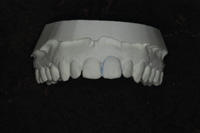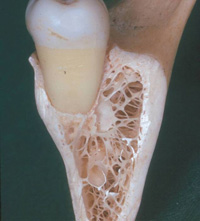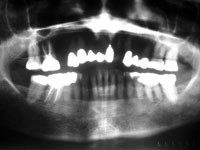I have just spent another intense day in yet another dental practice observing, interviewing, and assessing my new client’s team, both privately and in action. After several hours, I have a fairly solid read on what I have to work with based upon my evaluations of the staffís work ethic, professional talents, and interpersonal skills—and the situation is all too familiar.
For the most part, everyone is busy and works hard, although much harder than they would need to if the practice had better management and leadership and was run with more effective systems and stronger policy. Production is adequate, but it could be much higher if morale was better and everyone was better trained and more professional. The level of interest, focus, and excitement about dentistry is somewhat evident, but it could be far superior if the team was motivated by a high sense of purpose and willingness to “play the game,” not only as employees, but as entrepreneurs with a vested interest in seeing the doctor and the practice succeed and achieve their highest potential.
Now for the fun part: I need to sit down with the doctor to explain my findings and discuss solutions with the appropriate coaching methodology for his particular practice culture. However, none of what I am about to say to him will immediately be acknowledged or understood, because I will need to handle one of my favorite standard responses that I routinely get whenever I first confront the doctor about his or her team. It goes something like this:
“Mike, it’s just so hard to find good people.” To which I respond, slightly tongue-in-cheek, “Doc, you have good people. You’re just ruining them!”
So, all kidding aside, I’ll share with you now some of the secrets to finding (and keeping) good staff.
|
|
|
Illustration by Brian C. Green
|
(1) Most good staff you already have working for you.
There are 2 schools of philosophical thought when it comes to your people: they are either essentially good or they are essentially bad. Your prevailing mentality on this point will determine whether your staff will make it in your practice. In general, if you view your team members as bad, wrong, inefficient, inadequate, and incompetent in various ways, I can assure you that the majority of the time they will be, and will only become worse in time. If you view your team members the opposite way, as essentially good with room for improvement and development, then they will usually live up to your expectations and be more than willing to improve, given the opportunity to do so. You need to realize that all you have with your staff members is their willingnessótheir willingness to comply, produce, participate, support you in whatever way you expect and need them to, etc. However, once youíve lost their willingness, youíve lost them. They may physically be there for some time after their willingness has gone (usually too long), but their hearts arenít in it anymore, and mentally they have checked out on you and the practice. Putting time, money, and attention into your current staff should be viewed as the best investment you could make, which brings me to my next point.
(2) Your annual budget allocated to the training and development of your team should be somewhat more than the zero dollars per year that you are currently spending.
You are probably thinking to yourself, “What about all those continuing education courses and weekend management seminars I send the staff to from time to time?” Well, they don’t count! First of all, clinical training is just that—clinical. It is, of course, necessary and of critical importance for you to have your team members on the cutting edge of clinical development and professional expertise, but all of this type of training won’t necessarily make them better communicators, teammates, salespeople, dental educators, managers, problem solvers, or entrepreneurs, just to name a few. Thatís what the weekend management seminars are supposed to do, right? Unfortunately, this is not the case. I have learned through my years of extensive experience and observation in working with dental practices that the only way truly to transform a team and make permanent, sustainable growth and lasting positive change in people is through frequent, intensive, and highly personalized coaching and consulting.
It is far too often that I encounter practices struggling to achieve their goals that have been through two, three, or more practice management companies, as well as to a variety of seminars, workshops, boot camps, and the like. These practices have ended up with a confusing hodgepodge of various philosophical and operational management styles with an un-even mix of people at diverse levels of personal and professional development. They are not in total agreement as a cohesive team driving toward a known goal with a single, aligned methodology. My philosophy is that if you are going to pursue practice management and the professional development of your people, donít dabble in it or attempt the bits-and-pieces approach. Do it right the first time, and get off the consultant car-ousel once and for all. You are not saving any money in the long run, nor are you achieving your goals and dreams any faster by selling you and your team short…and this segues nicely to my third point.
(3) Stop trying to save money or lower your overhead by getting and trying to keep staff on the cheap.
I know this will ruffle some of your accountantsí feathers, but you need to start thinking outside the box a bit if you want to assemble and keep a powerhouse team of individuals who are the best of the best at what they do. I canít begin to tell you how many times I have dealt with doctors (and their accountants) who absolutely freak out when their staff salaries as a percentage of overhead rise above the 22% to 24% national average. I’m not saying that you should ignore your expenses or simply throw money at people, but I can tell you that you are not doing yourself any favors by trying to cut costs or save money by hiring cheap and hitting existing staff in the pocketbook by not sharing the wealth. As the old adage goes, “You get what you pay for,” and your team should be viewed as the best investment (not cost) you could make
If you perceive your staff as a cost, then you may have the wrong people or the wrong attitude. A good staff is a valuable asset that possesses unlimited potential for the ongoing growth and expansion of your practice. Your team members should contribute to your bottom line every day, not just by what they do but also by how they are with each other, you, and your patients. This determines whether patients buy from you and choose to return. Good staff members are motivated by incentives beyond their salary, be it bonuses or other perks that you offer for superior perfor-mance. They actually should lower overhead by keeping operational costs down, working more efficiently with an eye toward maximum productivity and peak efficiency at all times, and increasing practice profit margins as a result.
So, if all of this isnít enough to have you perhaps shift your viewpoint on how you should be paying and giving bonuses to your staff, here is some hard data from the statistics that I regularly keep on my clients. Over the course of a 1-year program, my average client realizes a minimum of 20% to 75% increase in his or her production and collections depending on the relative size of the practice at inception. Staff salaries and bonuses as a percentage of overhead are in the 25% to 30% range, again relative to the size of the respective practice, but do you think my clientsí accountants or teams are complaining with this level of growth? Itís all about return on investment, which is how you should view your team. I am sure George Steinbrenner, owner of the New York Yankees, isn’t bemoaning the fact that he has the largest payroll in all of baseball when he sees the revenue being generated from having a superstar at virtually every position and a franchise that is currently worth an estimated $1 billion…which brings me to my final point.
(4) Realize that a good staff is created, not hired, but the great ones are born, not made.
At the center of every great practice is usually a great practice administrator and team leader who supports the doctor and is the foundation around which the rest of the team is built. He or she is a “rainmaker,” someone who makes things happen. This person creates magic with your schedule on a daily basis, always booking it to goal and filling the holes before they even have time to open. This person has a near- genius IQ when it comes to dentistry and can close a case before you even have a chance to mess up the sale. This valued team member handles practice problems, patients, and personnel with diplomacy and skill, displaying effortless competence in doing so. They embrace the practice as if it were their own in everything they do, even though they are not a shareholder in the company. This person is perhaps one in a thousand or even a million, and yet you seem to think that everyone should be like him or her. That would be true if all staff members came out of the box like this, but, unfortunately, they donít. A diamond in the rough you can work into a gemstone, because you are starting with the natural raw materials, but these people are a rare find. There are some qualities that are just simply innate to certain people, and no amount of training and development can instill these unique abilities in those people who do not possess them.
Stop trying to find or create perfection in everyone. It is not only unrealistic, but far too costly and time-consuming unless, of course, you have the financial resources of a George Steinbrenner at your disposal. (This usually is not the case.) Build around your superstar nucleus by investing in sufficient personal and professional development to create a team of highly trained and motivated professionals. Keep in mind that even the pros practice, drill, and role-play to stay consistently at the top of their games, and they have coaches as well.
CONCLUSION
Just as you invest in yourself each year to become better clinically at the art and science of your profession, so should you consider the investment in finding and retaining good staff. It may start with you, but it ends with them!
Mr. Massotto is the founder and CEO of Staff Driven Practices. After 10 years of business consulting success, he used his expertise in business and personal development to master their application in the dental field. ABC, FOX, CNN News, and Dentistry Today have nationally recognized him. He is the author of The 25 Surefire Ways to Destroy Your Dental Practice, a book that is the basis for a movie he wrote, produced, and directed in 2004. He is a frequent guest speaker at New York University School of Dentistry, Columbia University College of Dental Medicine, and The University of Medicine and Dentistry of New Jersey, where he offers practice management advice and guidance to dental students. Mr. Massotto founded the Dental Resource Alliance and created the Dental Office Managers Association. He can be reached at (973) 812-2188 or by visiting staffdriven.com.












